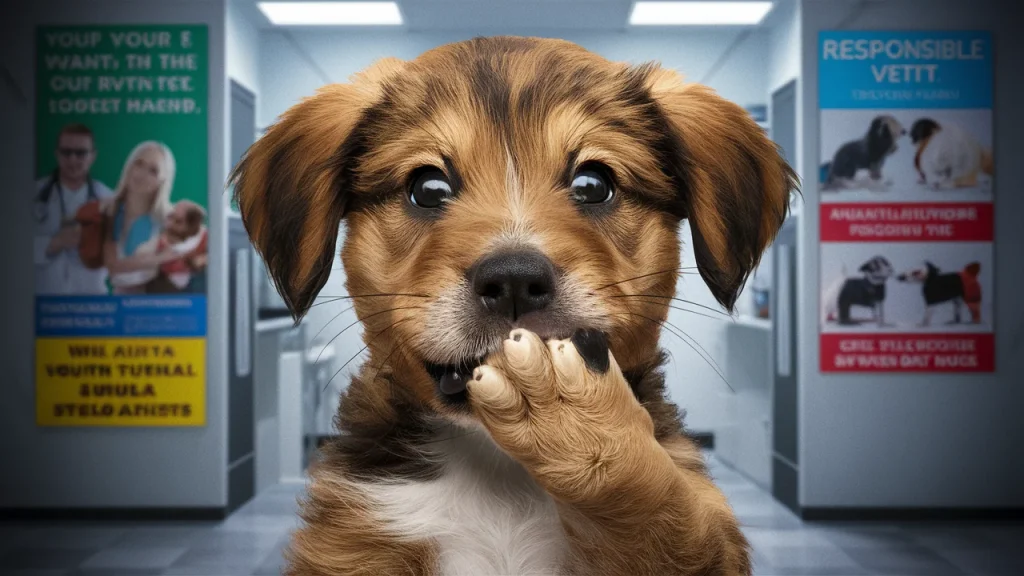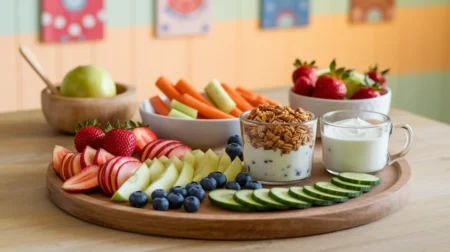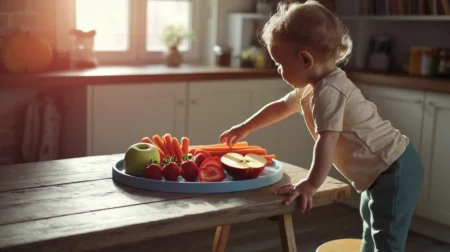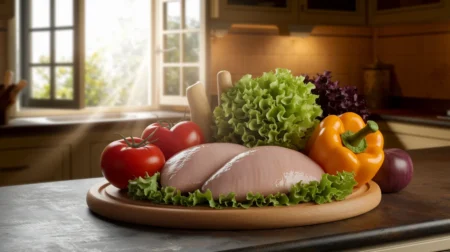Are you concerned about your puppy’s knuckling over? This condition, characterized by a weakness in the rear legs causing your puppy to walk on their knuckles, can be distressing. However, there are dietary strategies that can help address and potentially correct this issue. By understanding the causes, symptoms, and treatment options, you can provide your puppy with the necessary support for optimal growth and development.
Key Takeaways:
- Understanding the causes of puppy knuckling over
- Recognizing common symptoms associated with this condition
- Implementing dietary strategies to manage and potentially reverse knuckling over
- Incorporating rehabilitation exercises for muscle strengthening
- Exploring different treatment options available for puppies with knuckling over
Understanding Puppy Knuckling Over
In this section, we will delve into the phenomenon of knuckling over in puppies, exploring its causes and how to prevent it from occurring. It is essential to understand this condition to ensure the optimal growth and development of your furry friend.
The Causes of Knuckling Over in Dogs
Knuckling over in puppies can be caused by various factors, including:
- Genetic predisposition: Certain breeds may be more prone to developing knuckling over due to their genetic makeup.
- Rapid growth: Puppies who experience rapid growth spurts may be at a higher risk of developing this condition.
- Injury or trauma: Trauma to the leg or paw can lead to knuckling over in puppies.
- Muscle weakness or imbalance: Insufficient muscle strength or an imbalance between different muscle groups can contribute to knuckling over.
By understanding the underlying causes, you can take appropriate measures to prevent or manage knuckling over in your puppy.
Preventing Knuckling Over in Puppies
Prevention is key when it comes to knuckling over in puppies. By implementing the following preventive measures, you can help reduce the risk and promote healthy leg development:
- Provide a balanced diet: Proper nutrition is essential for the overall health and development of your puppy’s muscles and bones. Ensure their diet includes essential nutrients, such as protein, calcium, and vitamins.
- Control growth rate: Avoid overfeeding your puppy, as rapid growth can increase the risk of knuckling over. Consult with your veterinarian to determine the appropriate feeding guidelines for your puppy’s breed and age.
- Regular exercise: Engage your puppy in regular, age-appropriate exercise to promote muscle strength and coordination. Avoid excessive exercise or activities that may strain their growing bones and joints.
- Use appropriate bedding and surfaces: Provide your puppy with comfortable bedding and surfaces that offer proper support for their developing limbs. Avoid hard or slippery surfaces that may cause injury or strain.
- Early intervention: If you notice any signs of knuckling over in your puppy, seek veterinary assistance promptly. Early intervention and management can significantly improve the prognosis and prevent further complications.
By incorporating these preventive measures into your puppy’s routine, you can minimize the risk of knuckling over and promote their overall musculoskeletal health.
Recognizing the Symptoms
When it comes to puppy knuckling over, recognizing the symptoms early on is crucial for prompt intervention and effective treatment. By understanding the common signs associated with this condition, you can take the necessary measures to address the issue and provide your pup with the support they need.
One of the most noticeable symptoms of puppy knuckling over is puppy leg posture. You may observe that your puppy’s legs appear weak or wobbly, causing them to stand or walk in an abnormal manner. This abnormal leg posture can indicate potential leg issues and should not be ignored.
Another common symptom of puppy knuckling over is puppy leg issues. This can manifest as difficulty in walking or running, decreased coordination, and a lack of stability. You may notice your puppy struggling to maintain proper balance and experiencing frequent falls or stumbling.
It’s important to note that not all puppies with knuckling over will exhibit the same symptoms. Some may display milder signs, while others may experience more severe discomfort and mobility issues. Therefore, it’s crucial to pay close attention to your puppy’s behavior and seek veterinary advice if you notice any abnormalities.
“Early recognition of the symptoms allows for early intervention, which can greatly improve the prognosis and potential treatment outcomes for puppies with knuckling over.” – Dr. Sarah Thompson, DVM
If you suspect that your puppy may be experiencing knuckling over, it’s recommended to consult with a veterinarian. They can perform a thorough examination and provide an accurate diagnosis based on the specific symptoms observed. Remember, early detection and intervention are key to helping your pup recover and lead a healthy, active life.
Dietary Strategies for Knuckling Over
When it comes to managing and potentially reversing puppy knuckling over, diet plays a crucial role. By incorporating specific nutritional tips and making appropriate dietary choices, you can provide your puppy with the best chance of overcoming this condition and promoting healthy growth and development.
To manage knuckling over through diet, here are some dietary solutions and recommendations:
- Choose the right dog food for knuckling over: Opt for high-quality, balanced dog food that is specifically formulated to support musculoskeletal health. Look for options that contain essential nutrients such as omega-3 fatty acids, glucosamine, and chondroitin sulfate, which promote joint health and reduce inflammation.
- Include natural supplements: Consider incorporating natural supplements like fish oil or turmeric into your puppy’s diet. These supplements have anti-inflammatory properties and can help reduce joint pain and inflammation associated with knuckling over.
- Emphasize optimal nutrition: Ensure your puppy’s diet includes a balanced mix of protein, healthy fats, vitamins, and minerals. This can be achieved through a combination of lean meats, whole grains, fruits, and vegetables. Consult with your veterinarian for specific dietary recommendations based on your puppy’s individual needs.
- Control calorie intake: Puppies with knuckling over may benefit from controlled calorie intake to maintain a healthy weight and reduce excess stress on their joints. Monitor portion sizes and avoid overfeeding, which can lead to unhealthy weight gain and exacerbate the condition.
- Schedule regular meals and avoid free feeding: Establish a consistent feeding routine for your puppy by offering meals at scheduled times rather than allowing free access to food throughout the day. This helps regulate calorie intake and promotes a healthier digestive system.
By implementing these dietary strategies and making informed food choices, you can support your puppy’s overall health, improve their musculoskeletal function, and potentially manage or reverse knuckling over. Remember to consult with a veterinarian for personalized advice tailored to your puppy’s specific needs.
Rehabilitation Exercises
Rehabilitation exercises play a crucial role in strengthening your puppy’s muscles and improving their coordination. By incorporating these exercises into your pup’s routine, you can contribute to their overall rehabilitation and recovery from knuckling over. Here, we will explore different exercises that can benefit your puppy’s mobility and enhance their muscle development.
1. Strengthening Exercises
Strengthening exercises focus on building and toning the muscles in your puppy’s legs and core. These exercises help improve balance, stability, and coordination. One effective exercise is hill walking, which utilizes the incline to engage and strengthen the muscles in your pup’s legs. You can also try exercises that involve obstacles such as stepping over low hurdles or balancing on a wobble board.
2. Balance and Proprioception Training
Balance and proprioception training are essential for improving your puppy’s body awareness and control. One exercise that can aid in this is the “paw targeting” exercise, where you encourage your pup to place their paw on a target while maintaining their balance. This exercise helps in promoting better limb control and joint stability.
3. Controlled Walking and Leash Training
Controlled walking and leash training are important for teaching your puppy proper gait and preventing excessive stress on their legs. Use a suitable harness or specially designed assistance equipment to support your pup’s posture and encourage them to walk with the correct leg position. Gradually increase the duration and intensity of the walks while closely monitoring your pup’s response.
4. Hydrotherapy
Hydrotherapy, such as swimming or underwater treadmill exercise, can be beneficial for puppies with knuckling over. Water provides buoyancy, reducing the impact on your pup’s limbs while allowing for controlled movement and strengthening. Consult with your veterinarian or a qualified canine hydrotherapist to determine the most suitable hydrotherapy options for your puppy.
Remember to consult with a professional before starting any rehabilitation exercises with your puppy. They can guide you in creating a tailored exercise plan suitable for your pup’s specific condition and needs.
Puppy Knuckling Over Treatment
When it comes to treating puppy knuckling over, there are various options available to help your furry friend regain proper mobility and strength. From simple home remedies to medical interventions, here is a comprehensive overview of potential remedies for this condition:
Physical Therapy and Rehabilitation
Physical therapy and rehabilitation exercises play a crucial role in treating puppy knuckling over. These exercises focus on strengthening the muscles, improving coordination, and promoting proper gait patterns. Working with a professional veterinary physical therapist can provide tailored exercises and guidance to support your pup’s recovery.
Bracing and Splinting
Bracing and splinting can provide support and stability to your puppy’s affected limbs. Your veterinarian may recommend custom-made braces or splints that are designed to promote proper alignment and facilitate healing. It’s important to follow the instructions provided by your veterinarian and ensure proper fit to maximize the treatment’s effectiveness.
Medications
In some cases, your veterinarian may prescribe medications to manage pain, reduce inflammation, or address any underlying conditions that may be contributing to the knuckling over. These medications can help alleviate discomfort and support the healing process.
“Proper treatment and intervention are crucial in helping your puppy overcome knuckling over and regain a normal, active life.” – Dr. Sarah Johnson, Veterinary Specialist
Supplements and Nutritional Support
Incorporating supplements and nutritional support can be beneficial in supporting your puppy’s overall health and recovery. Omega-3 fatty acids, glucosamine, and chondroitin are commonly recommended supplements that can help reduce inflammation and support joint health. It’s important to consult with your veterinarian to determine the appropriate dosage and duration of supplementation.
Surgical Interventions
In severe cases or when other treatment options have been unsuccessful, surgical intervention may be necessary. Surgical procedures can address structural abnormalities, correct joint instability, or alleviate pressure on affected nerves. Your veterinarian will evaluate your puppy’s condition and determine if surgery is the best course of action.
Home Care and Lifestyle Modifications
Along with specific treatments, there are several home care measures and lifestyle modifications that can support your puppy’s recovery. These may include providing a comfortable and supportive environment, ensuring proper nutrition and hydration, managing activities to prevent excessive strain on affected limbs, and regular check-ups with your veterinarian to monitor progress and adjust treatment as needed.
| Treatment Option | Benefits |
|---|---|
| Physical Therapy and Rehabilitation | • Strengthens muscles • Improves coordination • Promotes proper gait patterns |
| Bracing and Splinting | • Provides support and stability • Promotes proper alignment |
| Medications | • Manages pain and inflammation • Addresses underlying conditions |
| Supplements and Nutritional Support | • Supports overall health • Reduces inflammation • Supports joint health |
| Surgical Interventions | • Addresses structural abnormalities • Corrects joint instability or nerve pressure |
| Home Care and Lifestyle Modifications | • Provides a comfortable environment • Manages activities • Regular check-ups with the veterinarian |
Preventing Knuckling Over in Puppies
Prevention is always better than cure. When it comes to knuckling over in puppies, taking proactive measures can make a significant difference in their health and well-being. By focusing on essential aspects of puppy health and nutrition, you can help promote strong muscles and joints, reducing the risk of this condition.
1. Puppy Health Tips
Achieving overall puppy health is crucial for preventing knuckling over. Here are some valuable tips to keep in mind:
- Regular veterinary check-ups: Schedule regular check-ups to monitor your puppy’s growth and ensure early detection of any potential issues.
- Exercise and play: Regular exercise and playtime provide essential physical activity, helping to strengthen your puppy’s muscles and improve coordination.
- Proper training: Training your puppy helps them develop good posture and movement habits, reducing the chances of knuckling over.
2. Puppy Nutrition Advice
Proper nutrition plays a crucial role in preventing knuckling over and promoting your puppy’s overall health. Consider the following advice:
- High-quality puppy food: Choose a balanced and nutritious puppy food that meets their specific developmental needs.
- Control portion sizes: Proper portion control ensures that your puppy receives the right amount of nutrients without overfeeding or underfeeding.
- Include joint supplements: Consult with your veterinarian about potential joint supplements that can support your puppy’s bone and joint health.
Prevention is the key to a healthier, happier puppy. By prioritizing their health and nutrition, you lay a strong foundation for their overall well-being and reduce the risk of knuckling over.
3. Early Intervention
Keep in mind that early intervention is crucial when it comes to knuckling over. If you notice any abnormalities in your puppy’s gait, limb posture, or movement, consult with a veterinarian immediately. Early diagnosis and treatment can help correct the issue before it escalates.
| Guidelines to Prevent Knuckling Over in Puppies |
|---|
| 1. Provide a balanced and nutritious diet for optimal growth and development. |
| 2. Schedule regular veterinary check-ups to monitor your puppy’s health. |
| 3. Incorporate exercise and playtime into your puppy’s daily routine. |
| 4. Implement proper training techniques to promote good posture and movement. |
| 5. Control portion sizes to prevent overfeeding or underfeeding. |
| 6. Consult with your veterinarian about potential joint supplements. |
Conclusion
In conclusion, by understanding the causes and implementing targeted dietary strategies, you can effectively manage and potentially correct puppy knuckling over. By providing your pup with a healthy, balanced diet that supports proper muscle and joint development, you can enhance their overall well-being and reduce the risk of knuckling over.
Additionally, incorporating rehabilitation exercises into your puppy’s routine can help strengthen their muscles and improve coordination, aiding in their overall recovery. It is important to consult with a veterinarian or a canine rehabilitation specialist to ensure you are performing the appropriate exercises for your pup’s condition.
Seeking appropriate treatment is also crucial in managing puppy knuckling over. Whether it’s through home remedies or medical interventions, it’s important to address this issue as early as possible to provide your pup with the best chance of full recovery and a healthy, active life.
Remember to always prioritize your puppy’s nutritional needs and consult with a veterinarian for personalized dietary advice. Every pup is unique, and professional guidance will help you tailor their diet to support their specific needs and minimize the risk of canine knuckling over in the future.
FAQ
What is puppy knuckling over?
Puppy knuckling over is a condition where a young dog’s front legs buckle or bend forward, causing them to walk on the tops of their paws instead of the pads.
What are the common causes of puppy knuckling over?
Puppy knuckling over can be caused by growth plate abnormalities, malnutrition, poor muscle development, nerve damage, genetic factors, or trauma.
How can I prevent knuckling over in puppies?
To help prevent knuckling over in puppies, provide a balanced and nutritious diet, ensure proper exercise and muscle development, avoid excessive weight gain, and take precautions to prevent injuries.
What are the symptoms of puppy knuckling over?
Common symptoms of puppy knuckling over include walking on the tops of the paws, abnormal leg posture, difficulty walking or running, muscle weakness, and in severe cases, lameness.
What role does diet play in managing knuckling over?
Diet plays a crucial role in managing knuckling over. Providing a balanced diet with adequate nutrients, including high-quality protein for muscle development, can help support proper bone, muscle, and joint growth.
Are there specific dietary recommendations for puppies with knuckling over?
While consulting with a veterinarian is essential, dietary recommendations may include feeding a puppy food formulated for optimal growth, providing supplements such as omega-3 fatty acids and glucosamine, and avoiding excessive calorie intake.
Can rehabilitation exercises help improve knuckling over in puppies?
Yes, rehabilitation exercises can be beneficial in improving muscle strength, coordination, and overall mobility in puppies with knuckling over. Exercises like controlled walks, balance exercises, and gentle stretching can aid in their rehabilitation.
What treatment options are available for puppies with knuckling over?
Treatment options for puppies with knuckling over may include physical therapy, orthopedic devices, medications, or, in severe cases, surgery. It is important to consult with a veterinarian or a veterinary specialist for proper diagnosis and guidance.











